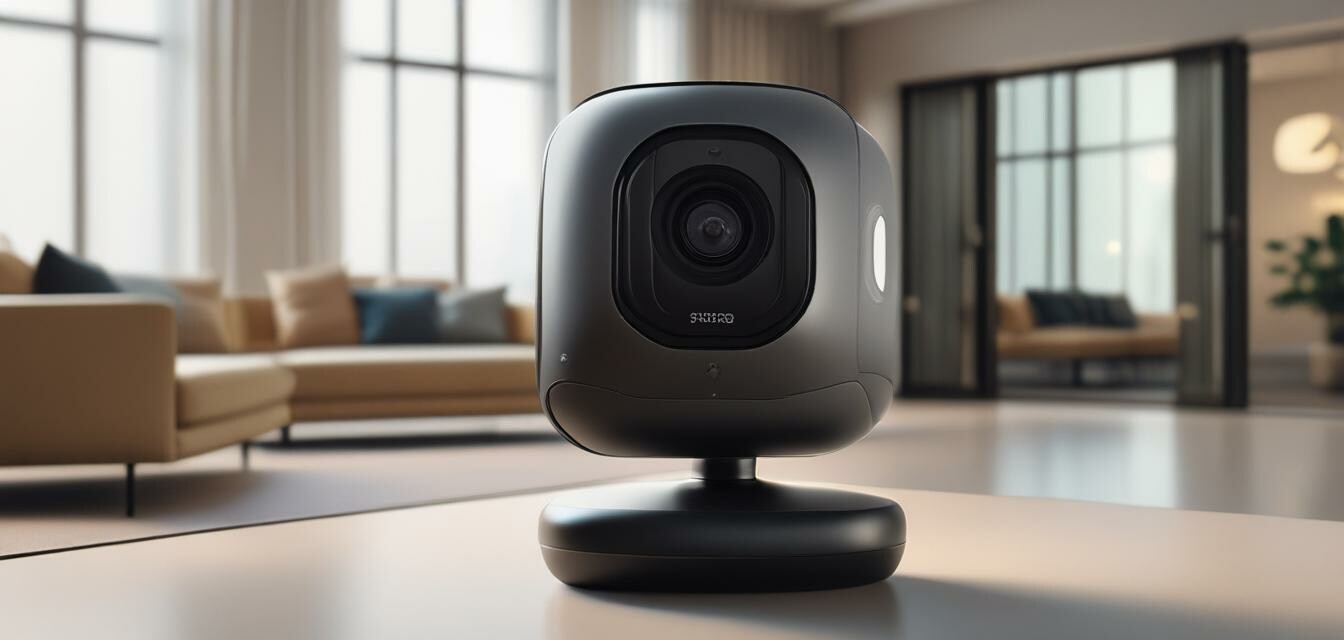
The best smart cameras for indoor safety in 2025
Key Takeaways
- Smart cameras enhance home security by providing real-time monitoring and alerts.
- Consider features such as resolution, field of view, and night vision when selecting a camera.
- Look for easy installation and integration with your smart home ecosystem.
- Pricing can vary significantly, so compare options to get the best value.
- User reviews can be a valuable insight into the performance and reliability of cameras.
As we approach 2025, the need for robust indoor security measures is more crucial than ever. Smart cameras are at the forefront of this technology, providing homeowners with peace of mind while integrating seamlessly into their daily lives. This guide will walk you through what makes indoor smart cameras a must-have for home safety, including comparisons of features, pricing, and user reviews.
Understanding indoor smart cameras
Indoor smart cameras serve as a vital part of a home security system. They allow homeowners to monitor their spaces remotely, receive alerts upon detecting motion, and even communicate with family members or pets while away. Given the vast number of options available, knowing what to look for can help streamline your decision-making process.
Key features to consider
| Feature | Description |
|---|---|
| Resolution | Higher resolution cameras provide clearer images. Look for at least 1080p. |
| Field of View | A wider field of view covers more area, reducing blind spots. |
| Night Vision | Ensure the camera can clearly capture video in low light conditions. |
| Two-Way Audio | This feature allows for communication through the camera, useful for interaction. |
| Smart Integration | The camera should work with other smart devices, enhancing security. |
Popular types of indoor smart cameras
When choosing the right indoor smart camera, consider the following common types:
- Bullet Cameras: Long and cylindrical, great for monitoring specific areas.
- Dome Cameras: Discreet and often vandal-resistant, suitable for general indoor use.
- PTZ Cameras: These cameras can pan, tilt, and zoom to cover larger areas.
- Wi-Fi Cameras: These connect wirelessly to your network, making installation easier.
Price ranges and value
The price of indoor smart cameras can vary greatly based on features and brand reputation. Typically, prices can range from $50 to $300 or more. Here’s a general overview:
| Price Range | Expected Features |
|---|---|
| Under $100 | Basic resolution and limited features, suitable for simple monitoring. |
| $100 - $200 | Good resolution, night vision, and smart integration options. |
| Above $200 | High-resolution imaging, advanced features, and robust build quality. |
User reviews and ratings
Before making a purchase, it is essential to gauge user satisfaction with different models. Reading reviews can provide insights into the cameras' performance over time, ease of use, and setup experience. Consider checking out customer ratings on popular platforms to see how models stack up against each other.
Pros and cons of smart cameras
Pros
- Enhanced home security and monitoring.
- Remote access and notifications.
- Integration with other smart home devices.
- Improved peace of mind when away from home.
Cons
- Privacy concerns with constant monitoring.
- Dependence on internet connectivity.
- Initial setup may require technical knowledge.
- Possibility of false alarms due to pets or motion.
Best practices for installation and usage
Correct installation is crucial for getting the most out of your smart camera. Here are a few tips on placement:
- Install cameras high enough to avoid tampering.
- Point cameras at entryways for effective monitoring.
- Avoid glare from windows by adjusting angles properly.
- Test the camera’s field of view before finalizing the placement.
Conclusion
Smart cameras are an essential tool for enhancing indoor safety in 2025. By considering features, prices, and user feedback, homeowners can make informed decisions to protect their loved ones and property. Explore more options in our Smart Cameras category and find the right fit for your home.
For additional guidance on choosing home security systems, visit our Buying Guides page for expert insights and recommendations.
